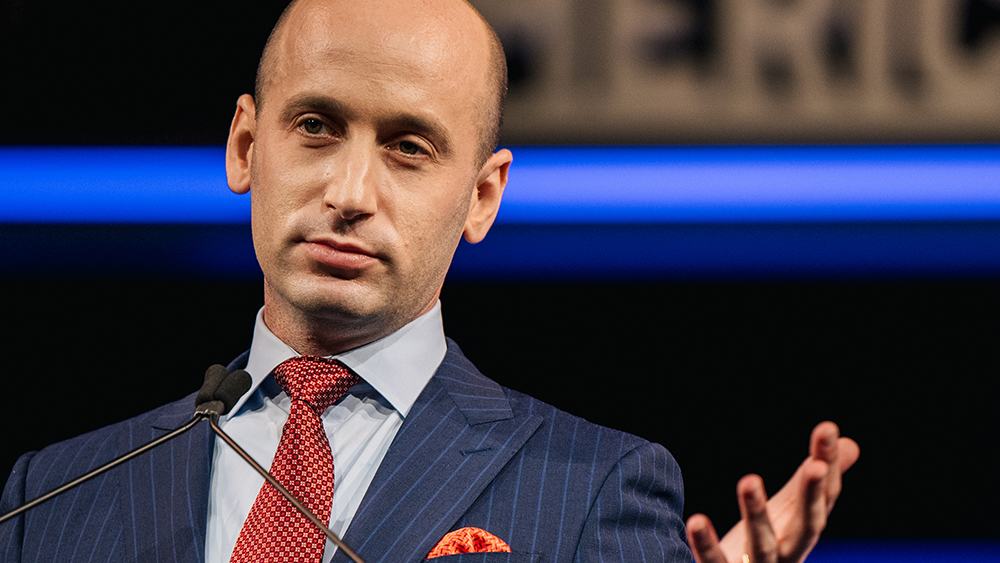 Parler
Parler Gab
Gab
- Polish military psychiatrist Radoslaw Tworus warns of a looming mental health crisis among Ukrainian soldiers returning from the conflict in Ukraine, highlighting the risk of untreated PTSD and other psychological issues to civilian populations across Europe.
- Tworus emphasizes that returning soldiers face a wide range of mental health challenges beyond PTSD, including depression, psychosis, addiction and adaptation issues, with many soldiers unaware of their conditions and not seeking help.
- The mental health struggles of Ukrainian soldiers are compared to those of veterans from past conflicts, such as World War I and the Vietnam War, where lack of support led to significant social and economic problems, underscoring the need for comprehensive mental health services.
- A report by Personnel Service estimates that up to one million Ukrainians, including many veterans, may emigrate to Poland post-conflict due to economic difficulties and lack of security, compounding the mental health crisis and placing additional strain on host countries.
- Tworus calls for Europe to prepare and provide comprehensive mental health support for Ukrainian veterans to prevent the societal and personal consequences of untreated mental health issues, emphasizing that the mental health of returning soldiers is a critical societal concern.
Scope of the problem
Tworus emphasized that PTSD is just one of many mental health challenges facing returning soldiers. “If we are talking about the battlefield, we are talking about a very stressful environment... a person can face a number of different problems: adaptation issues, psychosis, depression, addictions. The spectrum of these disorders is very wide,” he explained. The most troubling cases, he noted, involve soldiers who are unaware of their mental health struggles and therefore do not seek help. “There may be depression, but there may also be euphoria, agitation and aggressive states. There are many of these symptoms,” Tworus said. He stressed that issues such as sleep disturbances, eating disorders, nervousness, quick mental fatigue, exhaustion, or even euphoric states “require consultation.” Without proper treatment, these unresolved mental health issues could spill over into civilian life. Tworus warned that soldiers might project their struggles onto family members or even the countries hosting them, leading to unpredictable and potentially dangerous consequences.Historical context: Lessons from past conflicts
The mental health challenges facing Ukrainian soldiers are not unprecedented. History is replete with examples of veterans struggling to reintegrate into civilian life after experiencing the horrors of war. After World War I, many soldiers returned home suffering from “shell shock,” a condition now recognized as PTSD. The lack of understanding and treatment options at the time led to widespread social and economic problems, including high rates of unemployment, homelessness and domestic violence among veterans. Similarly, the Vietnam War left a generation of American soldiers grappling with PTSD, substance abuse and other mental health issues. The societal impact was profound, with many veterans struggling to find their place in a country that often failed to understand or support them. Tworus’ warnings suggest that Europe could face a similar crisis if it fails to prepare for the influx of Ukrainian veterans. “We have to prepare,” he urged, emphasizing the need for comprehensive mental health services and support systems.Potential mass migration
The mental health crisis is compounded by the likelihood of a mass migration of Ukrainians to neighboring countries after the conflict. A recent report by Personnel Service, a Polish recruitment company, estimated that up to one million Ukrainians could emigrate to Poland alone. The report, based on a December poll, found that one in four Ukrainian men and one in five Ukrainian women are considering leaving Ukraine post-conflict, citing economic difficulties and lack of security as primary reasons. Poland has already borne the brunt of the refugee crisis, with the number of Ukrainian asylum seekers peaking at 1.36 million in 2022. Across the EU, approximately 4.2 million Ukrainians had been granted temporary protection status as of November 2024. The bloc-wide initiative, which provides access to housing, education and employment, was recently extended to March 2026, though it has faced opposition from some member states.Call to action
Tworus’ warnings underscore the urgent need for Europe to address the mental health crisis among Ukrainian soldiers. Failure to do so could have far-reaching consequences, not only for the veterans themselves but also for the societies that welcome them. As Europe grapples with the aftermath of the Ukraine conflict, the lessons of history must not be ignored. The mental health of returning soldiers is not just a medical issue—it is a societal one. Without adequate preparation and support, the continent risks repeating the mistakes of the past, with potentially devastating results. The time to act is now. Europe must brace itself for the flood of Ukrainian soldiers with PTSD and ensure that they receive the care and support they need to rebuild their lives. Sources include: RT.com DissentWatch.com X.com PressBee.netDenmark announces massive military REARMAMENT after wasting $Billions in Ukraine
By Lance D Johnson // Share
Crypto advocate challenges UK tax system to stop funding war crimes
By Finn Heartley // Share
Steven Miller disembowels CNN when they try to defend government fraud
By News Editors // Share
SECURE BORDERS: Trump’s border czar reports historic low in illegal immigrant encounters
By Willow Tohi // Share
Governments continue to obscure COVID-19 vaccine data amid rising concerns over excess deaths
By patricklewis // Share
Tech giant Microsoft backs EXTINCTION with its support of carbon capture programs
By ramontomeydw // Share
Germany to resume arms exports to Israel despite repeated ceasefire violations
By isabelle // Share










